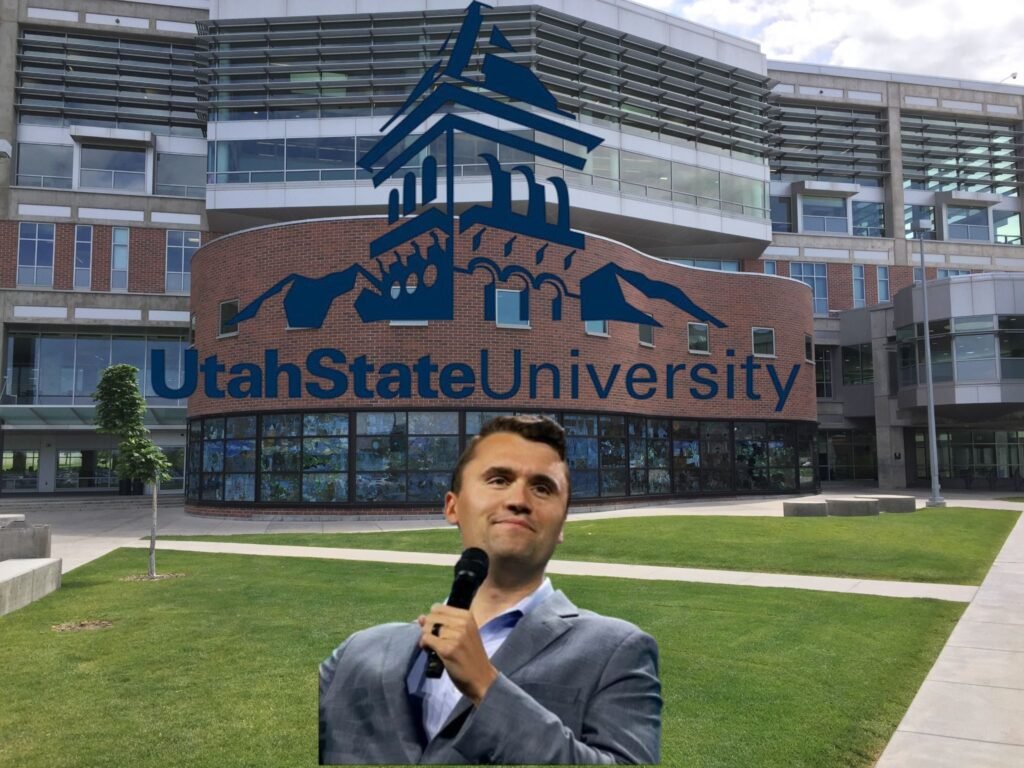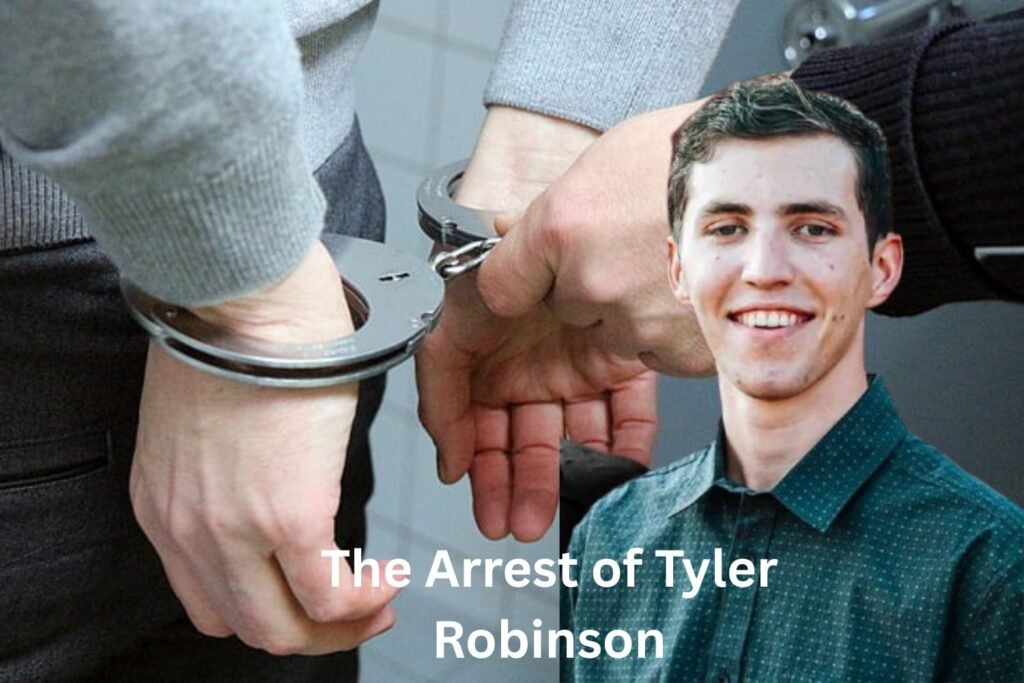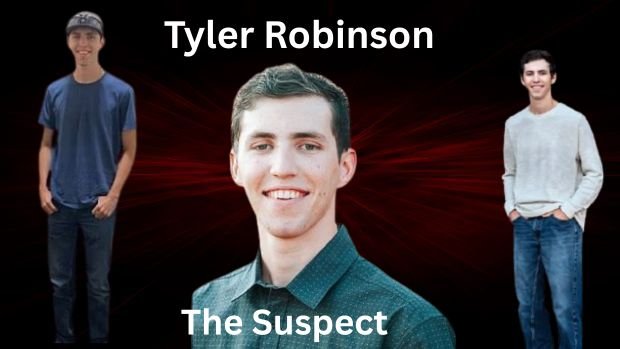Introduction
The arrest of Tyler Robinson, a 22-year-old from Utah, has thrown the United States into one of the most shocking episodes of political violence in recent memory. Robinson is accused of assassinating conservative commentator and activist Charlie Kirk during an event hosted at Utah Valley University (UVU) in September 2025. The killing sent shockwaves through political circles, universities, and American society at large, raising questions about political extremism, free speech, gun access, and the radicalization of young people.
This article examines Robinson’s background, the events leading up to the shooting, the evidence linking him to the crime, the legal proceedings underway, and the broader national implications.
The Shooting at Utah Valley University
On September 10, 2025, Kirk was delivering remarks to a packed audience at UVU. Known for fiery rhetoric and his role as co-founder of Turning Point USA, Kirk had drawn both strong supporters and vocal critics to the venue.
Just minutes into his address, a single gunshot rang out. Witnesses recall chaos erupting inside the hall as attendees screamed and scrambled for cover. Security rushed to the stage, and Kirk, struck in the neck, was quickly evacuated. Despite emergency medical efforts, he was later pronounced dead at a local hospital.
Investigators determined that the fatal shot had been fired from a rooftop approximately 200 yards away. The precision suggested planning, and almost immediately, a manhunt began.

The Arrest of Tyler Robinson
Less than 36 hours later, police in Washington County, Utah, arrested Tyler Robinson. His capture stemmed partly from a family tip. According to authorities, Robinson allegedly confessed or implied to a relative that he was responsible for the shooting. That relative passed the information to a trusted friend, who alerted law enforcement.
Robinson’s arrest was swift. Officers discovered evidence tying him to the crime scene, including a bolt-action rifle believed to be the murder weapon. He had allegedly tried to escape after the shooting by changing clothes, leaving the rooftop vantage point, and attempting to blend into crowds before traveling south.

The Evidence
Police and prosecutors have presented a growing body of evidence that appears to directly implicate Robinson:
- Forensic traces: Investigators found palm prints, shoe impressions, and body imprints on the rooftop where the shot was fired.
- Weapon recovery: A bolt-action rifle consistent with the shooting was recovered, believed to have been moved with Robinson’s involvement.
- Bullet casings: At the rooftop site, bullet casings were discovered with disturbing engravings. One read, “Hey fascist, catch,” while others contained lines from the anti-fascist anthem “Bella Ciao.”
- Digital communications: Robinson’s roommate reportedly provided Discord chat screenshots in which Robinson discussed retrieving a rifle, wrapping it in a towel, and preparing for use.
- Witness accounts: Robinson was seen wearing one outfit upon entering the UVU area and later spotted in different clothing during his attempted escape.
Together, prosecutors argue, this evidence paints a picture of premeditation and political motivation.
Who Is Tyler Robinson?
The emerging portrait of Robinson is striking in its contradictions.
Raised in Utah, Robinson was the eldest of three sons in a close-knit family. His mother is a social worker, and family photos depict birthdays, outdoor trips, and celebrations that appear typical of middle-class life.
Academically, Robinson excelled. He scored a 34 out of 36 on the ACT, placing him among the nation’s top percentile of test takers. He graduated from Pine View High School and briefly attended Utah State University. Teachers described him as quiet, intelligent, and thoughtful.
Importantly, Robinson had no prior criminal record. He was not known to law enforcement, and neighbors have described him as polite, if somewhat reserved.
But in recent years, Robinson became increasingly politically engaged. According to relatives, he expressed disdain for Charlie Kirk, once telling family members that Kirk was “full of hate” and “spreading dangerous ideas.” While political disagreements in families are common, his relatives said they noticed him becoming more intense in his rhetoric.

Motive: Politics, Anger, or Something More?
Authorities are cautious about assigning a single motive. However, evidence points to a blend of political anger and premeditation.
- Robinson reportedly viewed Kirk as a symbol of political extremism.
- The engravings on bullet casings suggest ideological symbolism, echoing anti-fascist narratives.
- Discord chats indicate deliberate planning, not an impulsive act.
What remains unclear is how Robinson shifted from political criticism to violent action. Investigators are examining whether online forums or radical networks influenced him, or whether personal grievances played a role.
Legal Proceedings
Robinson now faces some of the most serious charges in Utah’s criminal code:
- Aggravated murder
- Felony discharge of a firearm causing serious injury
- Obstruction of justice
If convicted, Robinson could face life in prison without parole or even the death penalty, depending on aggravating factors. Prosecutors are already moving to have him held without bail, citing the severity of the crime and risk to public safety.
His defense team has not yet announced its strategy. Possible arguments could include mental health factors, diminished capacity, or contesting forensic links. However, given the weight of evidence, a long, complex trial appears likely.
Public and Political Reaction
The killing of Charlie Kirk has ignited fierce responses across the political spectrum.
- Republican leaders, including former President Donald Trump, demanded the harshest penalties and framed the assassination as an attack on free speech and conservative values.
- Democratic leaders condemned the violence, emphasizing that political disagreements must never escalate into bloodshed.
- Universities and civil liberty groups expressed concern about event security, fearing that academic venues may become battlegrounds for political violence.
The case has also intensified debate over gun laws, online radicalization, and the tone of political rhetoric. Many argue that a polarized atmosphere makes violence more likely. Others caution against blaming ideology broadly, noting that Robinson’s individual actions should not be projected onto entire political groups.
Broader Implications
The assassination of a high-profile political commentator raises profound questions for American society:
- Political Violence: Is the U.S. entering an era where political figures are at greater risk from lone actors radicalized online?
- Campus Safety: How should universities balance free expression with safety, especially when controversial speakers draw passionate crowds?
- Gun Access: How did Robinson obtain and transport a long-range rifle to a rooftop without detection?
- Radicalization of Youth: Robinson was intelligent, well-educated, and came from a stable family. His path challenges stereotypes about who commits political violence.
The Human Cost
While political debate rages, the human tragedy remains central. Charlie Kirk, 31, leaves behind a family, a national following, and an organization deeply shaken. For supporters, his death is a devastating loss; for critics, it is still an unacceptable act of violence against a fellow human being.
Robinson’s own family now faces anguish and disbelief. To them, he was a gifted young man with a bright future, now accused of throwing it all away in a single act of violence. His relatives’ decision to come forward with information was both courageous and heartbreaking.
What Comes Next
The case against Tyler Robinson is just beginning. In the coming months, several developments will be closely watched:
- Formal charges and arraignment: Prosecutors will finalize their case, and Robinson will enter a plea.
- Evidence disclosure: More details may emerge about digital communications, planning, and motive.
- Trial strategy: Will Robinson fight the charges, or seek a plea deal to avoid the death penalty?
- Policy response: Lawmakers may propose new measures on campus security, firearm oversight, or monitoring of online threats.
Whatever the outcome, Robinson’s trial will be one of the most closely followed in recent U.S. history.
Conclusion
The story of Tyler Robinson is not just about a single suspect, a single victim, or a single crime. It reflects the turbulent currents of American life: polarization, radicalization, and the dangerous intersection of politics and violence.
For now, Robinson sits in custody, facing charges that could end his life as he knows it. Kirk’s family mourns. A nation debates. And many ask: how did a young man with so much potential end up at the center of an act that will shape political discourse for years to come?









1 thought on “Tyler Robinson(22): The Suspect Behind Charlie Kirk’s Fatal Shooting”